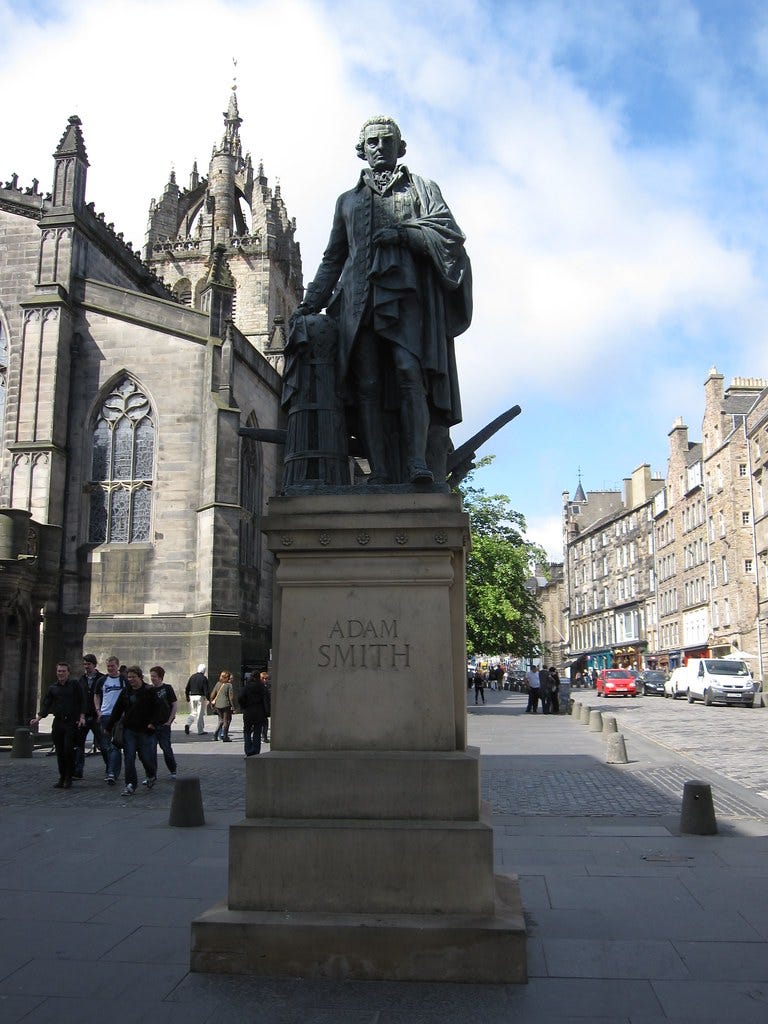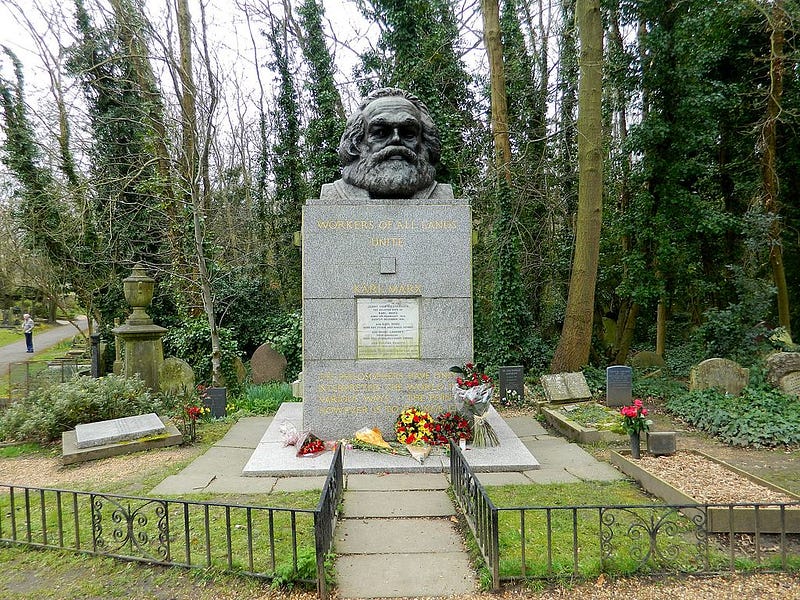Part 2 of a Discussion of Peter Foster’s Why We Bite the Invisible Hand Chapter 1 “Cardboard Cut-out Capitalism”
Peter Foster notes in his book that capitalism is a word everyone uses, often with negative connotations, but seldom define. (p. 24)
Defining capitalism is one of the key sticking points for authors trying to defend it. I think it matters less to those criticizing it, but either way, it helps to know what it is we are talking about.
Dierdre McCloskey wrestled with this in several chapters in her book Bourgeois Equality. She settled on the term “trade-tested betterment” as a better name for the system that has given us a 70 times increase in our standard of living in the last couple hundred years.
Foster refers to a definition from the Great Soviet Encyclopedia which clearly states what is often implied, “capitalism was a system based on exploitation and doomed to be replaced by socialism.” (p. 25)
Echoes of that is under most negative comments about capitalism, but it shows a lack of understanding of the value of voluntary trade that capitalism is built on.
The odd thing about capitalism today is how many anti-capitalist voices are monetarily supported by many big businesses, apparent capitalist winners. (p. 26) Perhaps that is our first hint that they are less supporters of capitalism and more for trying to maintain their success so competitors cannot rise up, even if it means killing the golden goose of capitalism.
Foster tells a story about a meeting with the director of a non profit, Canadian Centre for Ethics & Corporate Policy. Much of its financing came from the largest Canadian corporations. (p. 23)
The woman’s wide-ranging anti-corporate tirade was interrupted by an earnest, bearded man who had come by to drop off a publication titled “Citizens for Local Democracy…” The woman informed [him] that she was filling me in on the famous sweatshop fire in New York City. (p. 21)
According to her story, a fire in a sweatshop in New York City in the early 20th century served as an example of capitalism’s brutality. She said many workers died because they were chained to the machines. (p. 21) However, details like the name of the company she did not know.
Foster points out some additional information for this story. It was a horrendous story where a fire at the Triangle Shirtwaist Company on March 25, 1911, led to more than a hundred people dying, in part due to the inadequate fire escapes that collapsed. (p. 23)
That lined up with what the director had said, except for the crucial detail there is no evidence anyone was chained to the machines. Nor did she know about the reaction of some of the activists of the day that led to calls for changes resulting in dozens of new health and safety laws. (p. 23)
Foster captures the dichotomy of feelings surrounding capitalism. For those who support it, he says it means “freedom, opportunity, wealth and personal charity.” (p. 28)
For its critics, it is “attached to derogatory epithets such as brutal, casino, dog-eat-dog, cowboy, crony, no-holds-barred…” (p. 28)
He lists some of the common criticisms that make up the canon of anti-capitalism. (p. 28–29)
- Greed leads to exploitation and soulless consumerism
- Exploitation of workers and colonies is a critical component of its success
- The rich get richer and the poor get poorer
- It emphasizes competition at the expense of cooperation
- It is incompatible with altruism and charity
And so many more.
Every one of these endlessly regurgitated allegations is debatable if not downright false, so their pervasiveness and the ardour with which they are disseminated and embraced surely demand examination and explanation. The same series of flawed ideas would not return again and again if capitalism were not an institutional concept that somehow fails to connect with many minds, and/or appears to threaten at least some people’s basic psychological needs. (p. 29)
That is the thesis this book will explore.
What is it about capitalism that engenders so much hostility and blame in our hearts when it objectively is the only system that has pulled billions out of the poverty that was the norm everywhere for all time?
He turns in the next chapter to the “father of economics,” Adam Smith, who wrote about what came to be known as capitalism as it was being born.
Reference: Foster, Peter, 2014. “Cardboard Cut-out Capitalism” Chapter 1 of Why We Bite the Invisible Hand, Pleasaunce Press.




